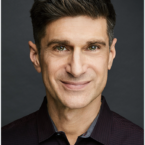AEDP™ Institute Seminar presented by Ronald Frederick, PhD
Recorded for On Demand Learning, Presented Live on March 17, 2023
This seminar is intended for Psychologists, Psychoanalysts, Social Workers, Counselors/Marriage and Family Therapists, Creative Arts Therapists.
Course Content Level: Intermediate
Description:
Early lessons about emotion and connection form instructional blueprints that get stored in memory systems outside of our awareness. Left unchallenged, they persist into adulthood and directly affect the ways we respond to our emotions and how we interact in our intimate relationships. With its focus on the here-and-now relational experience, the AEDP model of psychotherapy is ideally suited to unlocking and reworking internal working models of attachment. This workshop will focus on both the theory and technique of the AEDP model, making extensive use of videotaped material to illustrate how we can help our clients break free from old patterns and realize a broader range of personal and relational possibilities. In particular, we will examine and explore how therapeutic affective engagement and disclosure be maximized to help facilitate emotional and relational transformation.
Main Points of Seminar:
- Early lessons about emotion and connection form implicit models that unconsciously color one’s experience and guides behavior.
- Implicit learnings become malleable when activated and can be transformed by disconfirming experiences.
- The relational work of the AEDP model provides an opportunity for the reworking of internal working models.
- Defense work is needed to allow new experiences to be taken in or “received.”
- Use of the therapist’s self is central to providing a new, disconfirming relational experience, also key to memory reconsolidation.
- Reflection, as in metaprocessing, not only furthers transformation but can be maximized to integrate new learning and updates early conditioning.
Learning Objectives:
- Describe the essential elements needed to promote constructive emotional processing and catalyze memory reconsolidation and how to make use of them in therapy.
- Recognize the different ways in which early relational learning shows up in the here-and-now experience of the client.
- List the factors that foster neuroplasticity and demonstrate how they can be put to good use in psychotherapy.
- LIst the essential elements needed to promote emotional processing and memory reconsolidation and how to make use of them in therapy.
Meet the Presenter

Ronald J. Frederick, PhD
Ronald J. Frederick, PhD, is a licensed clinical psychologist, senior faculty member of the AEDP Institute, co-founder of the Center for Courageous Living in Los Angeles, California and author of the award winning books Living Like You Mean It (Jossey-Bass, 2009) and Loving Like You Mean It (Central Recovery Press, 2019). Since 1994, Dr. Frederick has been training in, practicing, and teaching the AEDP model of psychotherapy, and has received extensive training and supervision from Dr. Fosha. Past experience includes fourteen years as a Clinical Supervisor at Abbott Northwestern Hospital’s Park House Day Treatment Program, a post-doctoral fellowship in Medical Psychology and HIV in the AIDS Center Program at Roosevelt Hospital, NYC, where he later worked as a staff psychologist, and a year-long training rotation in Intensive Short-Term Dynamic Psychotherapy at Beth Israel Medical Center, NYC. Dr. Frederick supervises trainees in the AEDP model, and has co-facilitated, with Dr. Fosha, AEDP numerous Immersion Courses and workshops. (Read More…)Requirements
AEDP Institute On Demand Trainings are to be viewed on your private computer or smart device. They are intentionally not downloadable; we “stream” them. So, having a high speed Internet connection is important to having a good learning experience.
This training is intended to be viewed only by mental health professionals and students in mental health or related fields. You will be asked to provide evidence of and swear to uphold your professional credentials before completing registration and payment and receiving access to the materials.
Fees and Registration
$99 USD Non-Members
$89 USD AEDP Institute Members – please login to receive your discount
Attendance and Makeup Policy & Refunds:
Questions:
Course and all customer service related questions:
Please contact Customer Service Administrator
Marilia Rodriguez
admin@aedpinstitute.org
813-553-1294
